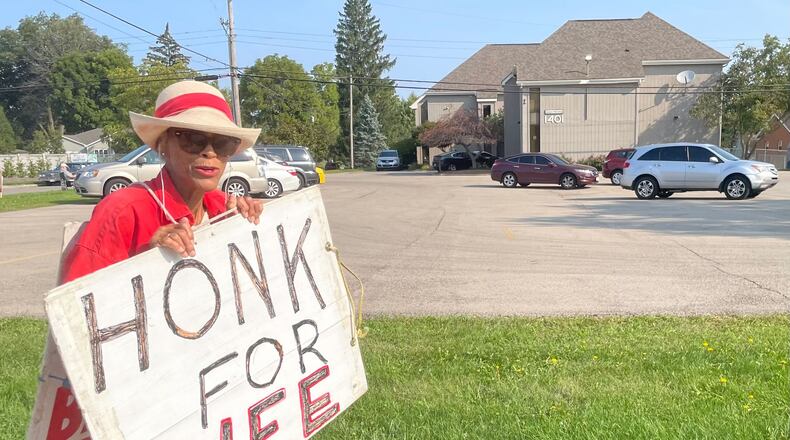This means that abortions through 20 weeks’ gestation — what Ohio law allowed before the six-week ban — can continue for now.
“We’re going to ask the judge to rule on that request before the temporary restraining order is over, so before the 14 days is up,” Jessie Hill, an attorney working with the ACLU, told the Dayton Daily News.
Jenkins can issue an additional 14-day restraining order as well, Hill said.
“We’re asking the judge to rule before that expires so there won’t be any breaks in services so that Ohioans can continue to exercise their constitutional rights continuously until he makes a final decision whether the ban can stand or not,” Hill said.
One of the defendants in the lawsuit is Ohio Attorney General Dave Yost. He said in Dayton on Thursday that his office is still reviewing the judge’s decision and he planned to consult Gov. Mike DeWine and his office before deciding their next steps. A message to Yost’s office Friday wasn’t returned.
In the judge’s ruling, Jenkins said the abortion providers are likely to win their case. He said Ohio’s Health Care Freedom Amendment (HCFA) implemented in 2011 could be used to argue the plaintiffs’ case.
“No great stretch is required to find that Ohio law recognizes a fundamental right to privacy, procreation, bodily integrity and freedom of choice in health care decision-making,” he wrote.
“The State Defendants argue that the HCFA was intended by its drafters to provide a legal basis for Ohio and Ohioans to undermine or avoid the federal Affordable Care Act, not to outlaw health care regulation in Ohio,” the court document says.
But the judge’s ruling says the amendment “contains a direct recognition of the fundamental nature of the right to freedom in health care decisions.” The judge also ruled that the law discriminates against pregnant women in violation of the state’s constitution and used examples of women battling medical conditions who had to travel out of state to get an abortion so they could receive treatment.
The ruling sparked a surge of patients who are in some stage of seeking an abortion to scheduled appointments Thursday with Women’s Med Center in Kettering, the only clinic in the Dayton area that provides abortion services. It came the same day as clinic officials had feared they would be forced to close because of the new laws.
Bob and Vivian Skovgard of Kettering were outside the clinic Friday along with other anti-abortion demonstrators. The Skovgards said they are outside the clinic nearly every day.
Bob Skovgard said the judge’s ruling read “like a propaganda pamphlet from Planned Parenthood” and said he was outside the clinic to try to convince women not to have abortions.
Vivian Skovgard said she was disappointed when she learned of the judge’s ruling.
“My initial reaction was ‘Oh no, please,’ but I wasn’t surprised by it because I understand that the other side is not going to sit back so I wasn’t surprised,” she said.
She said she believes legislators are likely to revisit the law, and she is going to stay focused on her mission outside the clinic.
“I’m still here just to let (parents) know we can still help them,” Vivian Skovgard said. “And if they want to come over and talk we are happy to help them.
“The important thing to me is saving lives and helping other people, and I pray that I can continue to do so.”
About the Author


